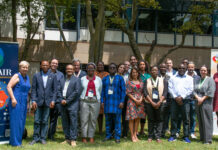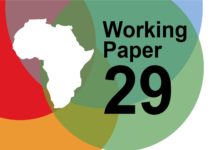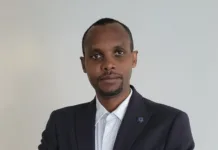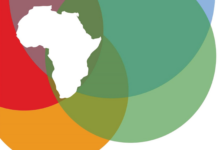Open AIR has two co-hubs in Southern Africa: the Intellectual Property Unit (IP) at the University of Cape Town (UCT), and the University of Johannesburg (UJ). At the UCT IP Unit, 4IR activities fall under several tracks: a series of briefs, teaching, coordinating with the law faculty’s newly established Law Tech Lab . Meanwhile, the UJ hub hosts a South African National Research Foundation, Department of Science and Technology, and Newton Fund Trilateral Research Chair in Transformative Innovation, the 4th Industrial Revolution, and Sustainable Development.
The IP Unit is publishing a series of briefs on the intersection of IP and compelling 4IR technologies such as AI and blockchain, with an emphasis on the African context. The first brief in this series will be available soon on the IP Unit’s website, ip-unit.org. The objective is to highlight key issues on the topic and include suggested readings for those looking to explore further. The team at UCT, under the guidance of Founding Director and Open AIR Co-Principal Investigator, Tobias Schonwetter, is also aiming to produce a series of blog posts and other publications based on this brief, hoping to garner further interest in the topic.
Issues of gender in AI are also under investigation at the IP Unit, to be used for a second brief. This brief will involve the team conducting scoping research on the topic, while adopting a gendered perspective to knowledge governance and its relationship to data.
On the teaching front, a new Cyberlaw LLB course was piloted in 2019 at UCT, integrating core elements of AI discussions. The course is jointly taught by Schonwetter, Bram Van Wiele, and Douglas Gichuki. It tackles topics such as consumer and data protection, cybercrime, AI consequential decision making, and ethics.
AI and machine learning are also the central focus of the UCT law faculty’s Law Tech Lab. Founded by both the IP Unit and the Democratic Governance and Rights Unit, the lab aims to engage students and tackle legal issues pertaining to 4IR and digitization, as it unfolds in the contexts of Africa. Multifaceted inclusion, including affordability and access to justice in light of the 4IR, are key themes.
Open AIR partners at UJ are also active on several different fronts in the area of AI and 4IR. UJ is one of the founding partners of 4IRSA, a collaboration bringing together stakeholders from across academia, industry, civil society, and government in conversations and initiatives pertaining to AI and its impact on society. 4IRSA’s latest activities include the ‘Digital Economy Summit 2019’, which took place in July 2019 and featured speeches from prominent speakers, including South Africa’s President Cyril Ramaphosa, garnering significant media attention. Open AIR’s informal sector innovation theme leader, Erika Kraemer-Mbula, has been part of the Summit’s operations committee over the past year. The Summit particularly focused on inequality, in light of ongoing digital transformations.
Fieldwork is also underway at UJ, where partners are gathering empirical data on the different modalities and uses of 4IR technologies in manufacturing processes and the implications this has on skills development in South Africa. Through firm level case studies, their research examines the incidence and use of technologies and skills as well as the challenges and opportunities faced. Accordingly, recommendations for education and the skills training necessary to prepare South Africa for the impact of the fourth industrial revolution will be put forward.










